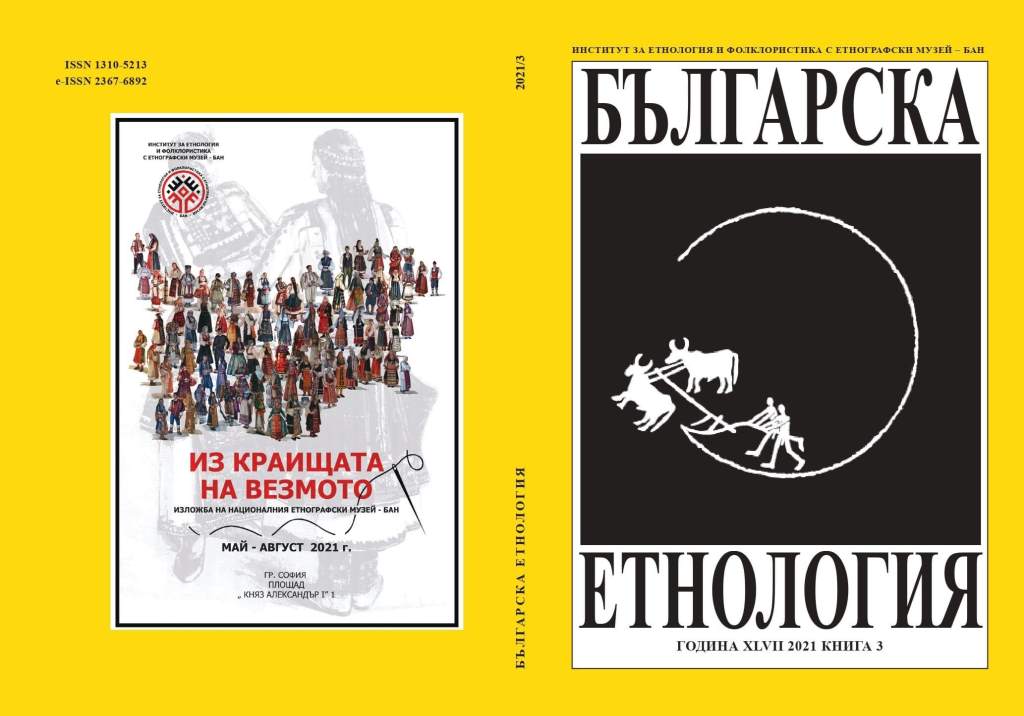Да преживеем Възраждането: исторически възстановки на националния метаразказ
Experiencing the Bulgarian National Revival: Historical Reenactments of the National Meta-Narrative
Author(s): Anna AleksievaSubject(s): Anthropology, Social Sciences, Customs / Folklore, Economic history, Local History / Microhistory, Oral history, Modern Age, Cultural Anthropology / Ethnology, Culture and social structure , 18th Century, 19th Century
Published by: Институт за етнология и фолклористика с Етнографски музей при БАН
Keywords: historical reenactments; Bulgarian National Revival period; national heroes; Master narrative; nationalism
Summary/Abstract: The paper is focused on historical reenactments of the so-called Bulgarian NationalRevival Period. The main approach is history-based, using the well-known periodization. It starts with the first documented historical reenactments, following with later history reconstructions, which can be observed nowadays. Historical reenactments are studied in close relation with their history narrative versions – official, unofficial, popular, banal, academic while being largely based on the official-unofficial dichotomy, putting it into question. The empirical material is drawn from the initial footsteps of the historical reenactments, which took place after the co-called Liberation (3.3.1878) to the First World War, following the interwar period, socialist nationalism, and the post-socialist decade sat the end. Numerous interviews, made by the “Historical reenactments as a cultural phenomenon” research project team are involved. A set of questions are raised: which episodes of Master narrative of the NationalRevival are subject of particular interest by reenactors; why they prefer them; howreenactors conceptualize processes of globalization of society and deconstructiveapproaches in social sciences; how they consider their own reenactments ideas – asofficial, or as unofficial, alternative ones; when they claim for alternativity, how thisnotion is regarded and what they see as official; why narrative for history, seen byreenactors as official, is perceived as unsatisfactory; how their claims unofficiality paradoxically leads to reinforcing the official Master narrative. One of the main points of the research is tracing the history the relation between popular nationalism and institutionalized one from the last decades of 19 c. to the first 20 years of 21 c.
Journal: Българска етнология
- Issue Year: 2021
- Issue No: 3
- Page Range: 360-377
- Page Count: 18
- Language: Bulgarian

